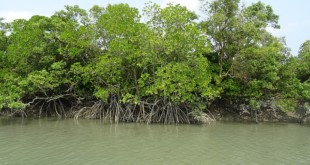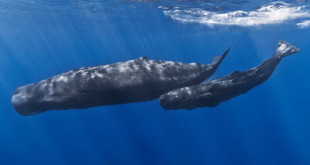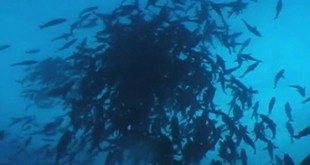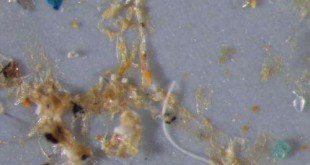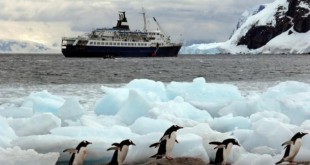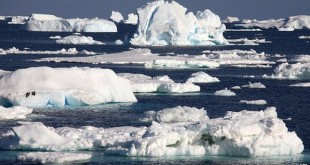Expanding aquaculture in South-East Asia over the last two decades has been the main driver of mangrove loss in the world, says a study published in PLOS One this month…
June, 2017
-
24 June
World Heritage coral reefs likely to disappear by 2100 unless CO2 emissions drastically reduce
The analysis predicts that all 29 coral-containing World Heritage sites would cease to exist as functioning coral reef ecosystems by the end of this century under a business-as-usual emissions scenario…
-
24 June
Rising temperatures, acidification threaten Mediterranean Sea species
Water temperatures in the northwestern Mediterranean are increasing much faster than global averages, threatening the survival of several species, French researchers said.
-
23 June
Lessons from whale population collapse could help future species at risk
The research, carried out by scientists at the University of Zurich and University of Tasmania, used detailed records collected during the commercial whaling of the 20th century and collated by the International Whaling Committee (IWC)…
-
23 June
Blast from air guns used in hunt for oil killing plankton and threatening marine ecosystems, scientists warn
The use of seismic surveys of the seabed – described as ‘dynamite-like blasts going off every 10 seconds for weeks or months on end’ – has ‘enormous ramifications’ for ocean health… Source
-
22 June
The Gulf of Mexico’s ‘dead zone’ could nearly double in size this year
Agricultural runoff from the Mississippi River, as well as human and animal waste, fuel the growth of algae blooms each year in the Gulf of Mexico, which deplete marine life of oxygen — and sometimes lead to massive die-offs…. Source
-
21 June
Scientists probe role of sunscreen in accelerating coral reef decline
When marine biologist Craig Downs first visited the turquoise-blue waters of Trunk Bay in the Virgin Islands National Park in St. John in 2005, he arrived on a crucial mission: Find out why the health of the park’s coral reefs was declining… Source
-
20 June
Fish love songs may help protect them from overfishing, study finds
A research team led by scientists from Scripps Institution of Oceanography at the University of California San Diego and The University of Texas at Austin have discovered a way to use the incredibly loud, distinctive sounds produced by the fish when they gather to spawn to protect them from overfishing…
-
20 June
Plastic pollution in the Antarctic worse than expected
The levels of microplastic particles accumulating in the Antarctic are much worse than expected, a team of experts has warned…
-
20 June
The latest threat to Antarctica: an insect and plant invasion
Antarctica’s pristine ice-white environment is going green and facing an unexpected threat – from the common house fly. Scientists say that as temperatures soar in the polar region, invading plants and insects, including the fly, pose a major conservation threat…
-
19 June
Antarctic surface ice melt could be a sign of things to come
An area of Antarctica larger than Texas partially melted last year, a group of international researchers has found. And while it’s pretty well known ice at both poles has been melting for a while now, this ice is a bit different. In this case, it was surface ice the scientists were …
-
16 June
High temperatures, not ocean acidification, is threatening the growth of coral
The Achilles’ heel of coral growth is high temperatures, not ocean acidification, according to researchers from The University of Western Australia and the ARC Centre of Excellence for Coral Reef Studies….
 Ocean Sentry
Ocean Sentry
